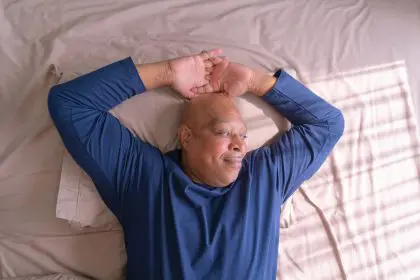
Thick hips and big butts are celebrated physical features in African American culture, and thus many full-figured women have a positive body image.
That’s the good news; the not-so-good news is that according to statistics, three out of four African American women are overweight or obese and the ramifications are deadly.
“Some blame our culture, the curvy woman, the voluptuous woman, that’s what our men like,” said Dr. Kimbra A. Bell, MD, Assistant Professor of Clinical Medicine, at Northwestern Memorial Hospital. “I have patients who come into my office, and I’m like ‘Chantel, you need to lose 20 pounds.’ And she’ll respond, ‘but Dr. Bell, I don’t want to lose my butt.’
It’s not about that, it’s about being healthy. It’s very important that we spread this message about the importance of being healthy, because being obese puts us at much greater risk for diabetes.”
Bell and a host of other health experts addressed the more than 200 first ladies from Chicago-area churches recently at a private luncheon. The program, The Walgreens First Ladies Health Campaign, is designed to inform these first ladies about ailments that disproportionately affect African Americans, so that they can in turn educate their communities.
Food deserts (communities without grocery stores and access to fresh fruits and vegetables) add to the obesity problem for blacks.
“Walgreens has stepped up to the plate by expanding its stores to carry fresh grocery items,” John Gremer, Director of Community Affairs for Walgreens, tells rolling out.
“As part of an overall initiative, [former] Mayor Daley asked us last year to look into how we could impact food deserts in Chicago,” Gremer says. “The whole idea of bringing in fresh fruits, vegetables, expanding the grocery and frozen meats and fish [section], because there is definitely a need. And good business is trying to serve the needs of the community.”
Gremer added that Walgreens has been working with Northwestern’s doctors and diabetes counselors so that customers can have access to healthy cooking. “ The whole idea is to try to impact and make healthier food more available in Chicago.”
Bell spoke to the first ladies about the obesity epidemic, the connection between obesity and diabetes, and explained that with proper treatment and lifestyle changes, diabetes can be controlled or even reversed.
Dr. Bell’s Frank Talk About Obesity and Diabetes
“Diabetes is a disease where there is not proper production of insulin and all of our bodies naturally make insulin and it’s this insulin that brings our sugars and keeps them down at normal levels.
Either diabetes is not producing this insulin, or the body is not properly utilizing this insulin. In individuals who are obese who carry extra fat, their bodies can’t use their insulin. And that’s when we develop Type 2 diabetes.
In adults we see Type 2 diabetes, and it makes up about 80 percent of all cases of diabetes. With Type 2 diabetes, one of the biggest risk factors is being overweight.
A risk factor is family history. If your mom, your dad, your sister has diabetes, then you do have an increased risk for developing diabetes and that is an un-modifiable risk factor.
A modifiable risk factor, the thing that we can do something about, is obesity.
Make sure you’re getting at least four to five days of exercise, for at least 30 minutes [each day]. Secondly, how you eat; the staples of your diet should be baked or broiled lean meats like fish or chicken, and fruits and especially your vegetables.
Your complex carbohydrates, such as, pasta and Alfredo sauce, mashed potatoes, white bread, things of that nature, are high in sugar … and they all break down into sugar in our bodies. It is a part of a balanced diet so you have to look at our ratio of when we take those things in.
Some people believe that once you’re diagnosed with diabetes that you’ve got to go on insulin, well, that’s not true. Based on where your levels are, we can treat you with oral medication (pills) to bring your sugar down and control your sugar.
I had a diabetic patient that lost a lot of that extra fat and her own insulin that her body were making, began to work again. They came off [medication].
In general, adhere to a healthy lifestyle and in doing so, many of the things that we as African Americans suffer from can be avoided, prevented or reversed.”
–zondra hughes
















